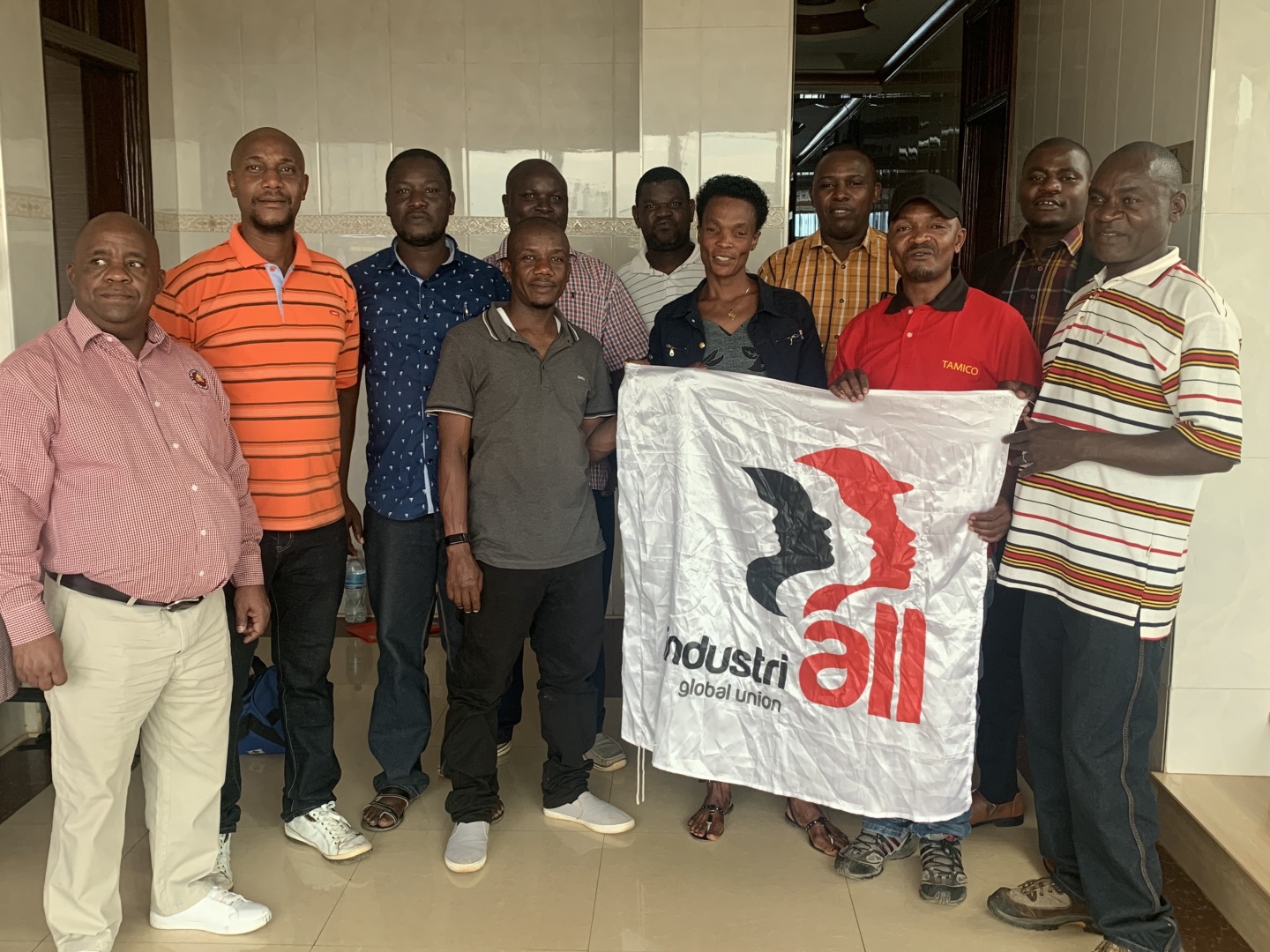Read this article in:
English
4 July, 2019Effective organizing in the mining sector requires convincing workers that the union can improve working conditions, negotiate collective bargaining agreements, and build strategies to counter precarious work.
Improved communications, worker education, participating in union activities, and maintaining workers’ unity also strengthen organizing. A workshop organized by IndustriALL Global Union Sub Saharan Africa region and IndustriALL affiliates, the National Union of Mineworkers (NUM), South Africa and Tanzania Mines Energy Construction and Allied Workers Union (TAMICO), attended by 14 participants in Dar Es Salaam 20-21 June discussed how to improve organizing in the mining sector in Tanzania
TAMICO has 11,000 members, 2,000 of whom are from the mining sector, but believes there is potential to double its membership. For example, at Nyanzaga Mine and Geita Gold Mine the union could recruit over 5,000 members.
After the workshop, six shop stewards facilitated an organizing drive with workers at North Mara Gold Mine where 120 workers joined the union. The new TAMICO members expect the union to improve its servicing of members and communicate better. The union must also negotiate collective bargaining agreements and make subscriptions affordable.
In response to the workers concerns, TAMICO general secretary, Saidi Nyungwa said:
“The union will engage members to address the challenges as this is important for the growth and future of the union. It is important for TAMICO to sustain its organizing efforts to improve the working conditions of mine workers in Tanzania.”
Tafa Moya, NUM’s mining house coordinator said TAMICO can learn from South African experiences.
“The NUM is negotiating for a clause to be included in the collective bargaining agreement to demand that workers be employed on a permanent basis and for equal pay for work of equal value. Additionally, after a long struggle, the NUM now sits in the Mine Health and Safety Council. It also trains shaft stewards to provide workplace service to members.”
The growth of the mining industry in Tanzania provides an opportunity for TAMICO to increase its membership. The government of Tanzania estimates that mining will contribute up to 10 per cent of the country’s Gross Domestic Product by 2025. Tanzania mines gold, iron ore, nickel, copper, cobalt, silver, diamond and tanzanite. Other industrial minerals including coal and uranium.
